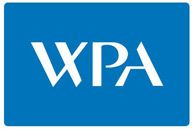Here is a list of common questions Platinum Physiotherapy are asked
If your question is not answered, or if you seek further information about our service please email us or call us on one of the above numbers.
Treatments
- Who benefits from Physiotherapy?
- What Conditions can be treated?
- What sort of treatment is offered at Platinum Physiotherapy?
- How is the best treatment decided?
- How many treatments will I need?
- Will I be expected to do anything in between treatments?
- Is Physiotherapy treatment appropriate for back and neck problems?
- How does Chartered Physiotherapy differ from ‘alternative’ forms of healing?
- What is Electrotherapy
- Can a Physiotherapist manipulate?
- Is it correct that heat and ice can be used to treat injuries?
- Should I stop my sports activity if I have suffered an injury?
Appointments
- Is there a waiting list for treatment?
- When are we available for appointments?
- Do I have to be referred by a doctor?
- How long are appointments?
- What should I wear?
- Should I bring medical notes and X-rays with me?
- How do I know if a Physiotherapist is fully qualified?
Payment
- What are your payment terms?
- I have Private Medical Insurance – am I covered with you?
- If I have private medical insurance do I need to pay for treatment?
Treatments
Who benefits from Physiotherapy?
Physiotherapy helps patients of all ages with a wide variety of conditions to relieve pain and improve movement, allowing the body to function more efficiently. Restoring normal posture and alignment to prevent recurrence and achieving a speedy recovery.
What Conditions can be treated?
Physiotherapists can treat almost all conditions which have one of these symptoms; pain, weakness, stiffness, loss of movement, including
Spinal Problems – including prolapsed discs, sciatica, degeneration, whiplash, lumbago, stiff/painful neck and referred arm and leg pains.
Joint Problems – arthritis, injury, pain/swelling/stiffness in joints such as shoulders, elbows, wrists, hips, knees and ankles
Injuries – to muscles, ligaments, cartilage and tendon problems; and work related conditions such as Repetitive Strain Injury (RSI)
After Surgery – rehabilitation after orthopaedic surgery e.g. hip and knee replacements, spinal operations or ligament reconstruction.
Fractures – treatment to increase the healing rate and to gain full function once the bones have healed.
Sports Injuries – strains, sprains and bruising to soft tissue.
More details on many of these can be found in our Conditions section
What sort of treatment is offered at Platinum Physiotherapy?
A wide range of treatments are available using the skills developed through years of practice as a Chartered Physiotherapist. They include manipulation, mobilisation, exercises and strapping to protect the area. More detials of these and other treatments can be found in our Treatments section These can be aided by the use of sophisticated electronic and electrical apparatus such as an ultrasound machine – all designed to help in the relief of pain and to promote healing. Of course in order to stop the same problem reoccurring, time will be spent teaching the patient methods that will help avoid this.
How is the best treatment decided?
A thorough assessment of each problem will be performed. This will involve a complete examination, together with an understanding of your work, rest and recreational activities.
This assessment may identify a problem which is situated some distance from where the pain is felt. It also ensures that the diagnosis and treatment will relate to you and your whole lifestyle.
The physiotherapist and the patient will then together in deciding the what the best course of treatment is for the individual. Informed consent is obtained before any treatment is performed.
How many treatments will I need?
We do not have a set number of treatments for any condition – every patient is an individual. However, following your first appointment the Physiotherapist will discuss the anticipated number of treatments. You will be reassessed on each visit and if progress plateaus out or if no improvement seems apparent then your treatment will be altered accordingly or you will be referred on to a specialist.
Will I be expected to do anything in between treatments?
We work in partnership with you to ensure your recovery is optimal and to minimise the chances of any relapse. Therefore, you will be given lots of things to think about and do during the week. This might include an exercise program or working on your posture. What you do between treatments is just as important as your treatment.
Is Physiotherapy treatment appropriate for back and neck problems?
Chartered Physiotherapists are qualified to treat all spinal problems. In fact a large percentage of their workload consists of neck and back problems. The postgraduate Masters qualification Leighton received in Australia was centred around complex spinal conditions.
How does Chartered Physiotherapy differ from ‘alternative’ forms of healing?
Physiotherapy is a medically recognised treatment with physiotherapists working closely with GP’s and consultants. Most physiotherapists will have spent time working in a hospital setting
The methods used by “alternative” therapies differ widely, but most of the theories and principles which govern them are included within the scope of practice of Chartered Physiotherapists. It can be argued that physiotherapy is the original “orthodox alternative”.
What is Electrotherapy?
Electrotherapy includes Ultrasound and Interferential treatments. This involves the use of electrical and sound energy waves which affect tissues by reducing swelling, pain and muscle spasm. Therefore, it promoting healing. There is more detail on this on our electrotherapy page
Can a Physiotherapist manipulate?
Yes, all Chartered Physiotherapists with the appropriate postgraduate training can manipulate. Leighton has achieved a Masters in Manipulative Therapy from Curtin University in Perth, Western Australia.
Is it correct that heat and ice can be used to treat injuries?
They are useful in the correct circumstances. Your Physiotherapist will advise you on when and how to use these for your condition. Use of ice after an acute injury can be found in our Patient info section under articles of interest.
Should I stop my sports activity if I have suffered an injury?
Get specialist advice from our Physiotherapists as to when you need to rest, work or play. Our role is to help to return to your previous level of activity as quickly and safely as possible
Appointments
Is there a waiting list for treatment?
No. We can usually see you within 48-72 hours. Sometimes same-day appointments are available.
When are we available for appointments?
Monday to Friday (including some evenings) although different days are available at each clinic.
Do I have to be referred by a doctor?
No, anyone can refer themselves for treatment although close contact will be kept with your GP regarding your progress unless you wish otherwise. This close relationship is for the benefit of you, the patient
We do receive a number of referrals and recommendations from GP’s and Orthopaedic Consultants as well as other medical practitioners.
However, if you wish to use your medical insurance to claim for treatment costs, some policies require your GP to authorise this.
How long are appointments?
Your appointment can last 30-45 min depending on what type of appt is required. See our Fees page for more details
What should I wear?
Quite simply, dress comfortably in loose fitting clothes. The therapist will need to see the affected body part, for the lower limbs bring shorts, for back problems the therapist may require you to remove your top. Ladies may prefer to wear a vest top when the problem is with their neck, shoulder or mid back.If you are worried about this please do not hesitate to discuss it with us prior to your first appt as often there are ways around the issue.
Should I have medical notes and X-rays at hand?
Any relevant information about the condition will help the Physiotherapist make an informed assessment, so if possible please have x-rays and notes on hand, but do not worry if you can not get hold of them.
How do I know if a Physiotherapist is fully qualified?
Only members of the Chartered Society of Physiotherapy (known as Chartered Physiotherapists) with the letters MCSP after their name and registered with the Health and Care Professions Council have undergone the required training and passed the necessary state recognised examinations to enable them to practice within the NHS or in Private Practice. Always ask if your physiotherapist is HCPC registered!!
The members of Platinum Physiotherapy will be pleased to show you their certificates and registration documents. Alternatively when you know the name of the physiotherapist that will be treating you, you can look up their registration on the HCPC website.
View HCPC website
Payment
What are your payment terms?
Payment is made after each consultation either by cheque or cash,. If authorisation is gained from an insurer / solicitor / case manager we can invoice them directly for your treatment.
I have Private Medical Insurance – am I covered with you?
Platinum Physiotherapy are recognised by all of the major insurance companies, as we are all Chartered Physiotherapists, and Members of the Health and Care Professionals Council. You will need to check with your insurance company prior to treatment, as some companies require a referral from a Doctor beforehand.
If I have private medical insurance do I need to pay for treatment?
Each insurer is different in the way that they operate as far as payment is concerned. Some require you to pay for your own treatment and then claim the costs back whereas others allow us to invoice them directly. We strongly advise that you discuss this with your insurer prior to arranging a consultation.




![axa_ppp_logo[1]](https://www.platinumphysio.co.uk/wp-content/uploads/axa_ppp_logo1.gif)

![cigna[2]](https://www.platinumphysio.co.uk/wp-content/uploads/cigna2.png)